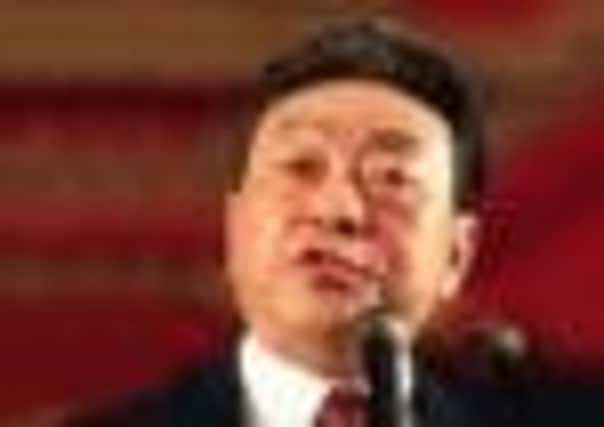China: Fallout from Tiananmen Square continues


Chen Xitong was dismissed as Communist Party secretary of Beijing in 1995 and later jailed on corruption charges, which many observers at the time saw as resulting from a power struggle pitting him against the then-president Jiang Zemin.
Mr Chen was also mayor of Beijing during the student-led protests of 1989, culminating in the violent quelling on 4 June of the demonstrators who made Tiananmen Square their base.
Advertisement
Hide AdAdvertisement
Hide AdNow, days before the 23rd anniversary of the crackdown, Mr Chen has denied the corruption charges and any prominent role in 1989, in a book likely to evoke the scandal over Mr Bo, the fallen party boss of the municipality of Chongqing.
Before his downfall in March, Mr Bo called rumoured accusations swirling around his family a “pile of nonsense” concocted by foes. Mr Chen gives a similar defence in a Chinese-language book of interviews to be published soon in Hong Kong.
“This was the worst miscarriage of justice involving a high-level leader since the Cultural Revolution, or since 1989 – it was an absurd miscarriage of justice,” Mr Chen said of the corruption and abuse of power charges that brought him a 16-year jail term in 1998. He won medical parole in 2004.
Although Mr Chen’s assertions about 1989 and his own downfall are likely to be disputed, they suggest how charges against ousted Chinese leaders are often nearly impossible to separate from broader political contention.
“In a power struggle, any means possible – any low-handed means – will be used, and the objective is to seize power,” Mr Chen said.
“But I didn’t take part in any power struggle, no matter what they think,” he said of his unidentified accusers.
The ambitious Mr Bo was brought down after a furore erupted when his former police chief, Wang Lijun, fled to a United States consulate in February. Before the scandal broke, Mr Bo was seen as a candidate to join China’s top leadership team to be unveiled this year.
Mr Wang apparently told US diplomats he believed Mr Bo’s wife, Gu Kailai, was implicated in the murder in November of a British businessman, Neil Heywood, a friend of the family. Mr Bo was suspended from the party’s top ranks in April.
Advertisement
Hide AdAdvertisement
Hide AdMr Chen, who turns 82 in June, laid out his denials of the corruption charges against him in a series of interviews with Yao Jianfu, a former official and researcher, in the book.
Publisher Bao Pu said: “It is a rare first-person account regarding the Tiananmen crackdown from a man widely believed to be responsible for the government’s violent solution.”
Mr Chen said that he was nothing more than a figurehead in 1989, and denied accusations he used his access to paramount leader Deng Xiaoping to exaggerate the threat posed by student protesters demanding political reform and an end to corruption.
Mr Deng was not bamboozled by subordinates into ordering the armed crackdown on the protesters, said Mr Chen.
“In fact, he had many sources and eyes and ears,” Mr Chen said of Mr Deng’s knowledge of the protests. “How could Deng Xiaoping have been deceived? Saying that underestimates him.”